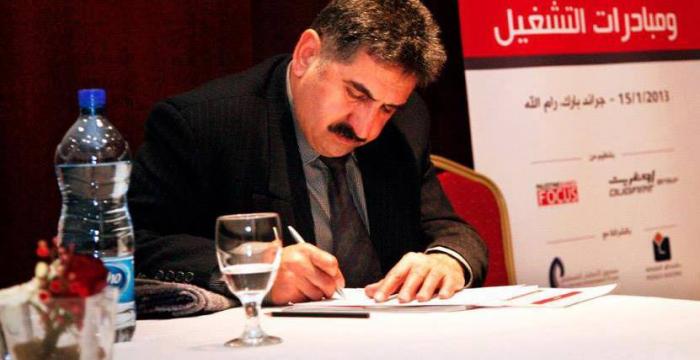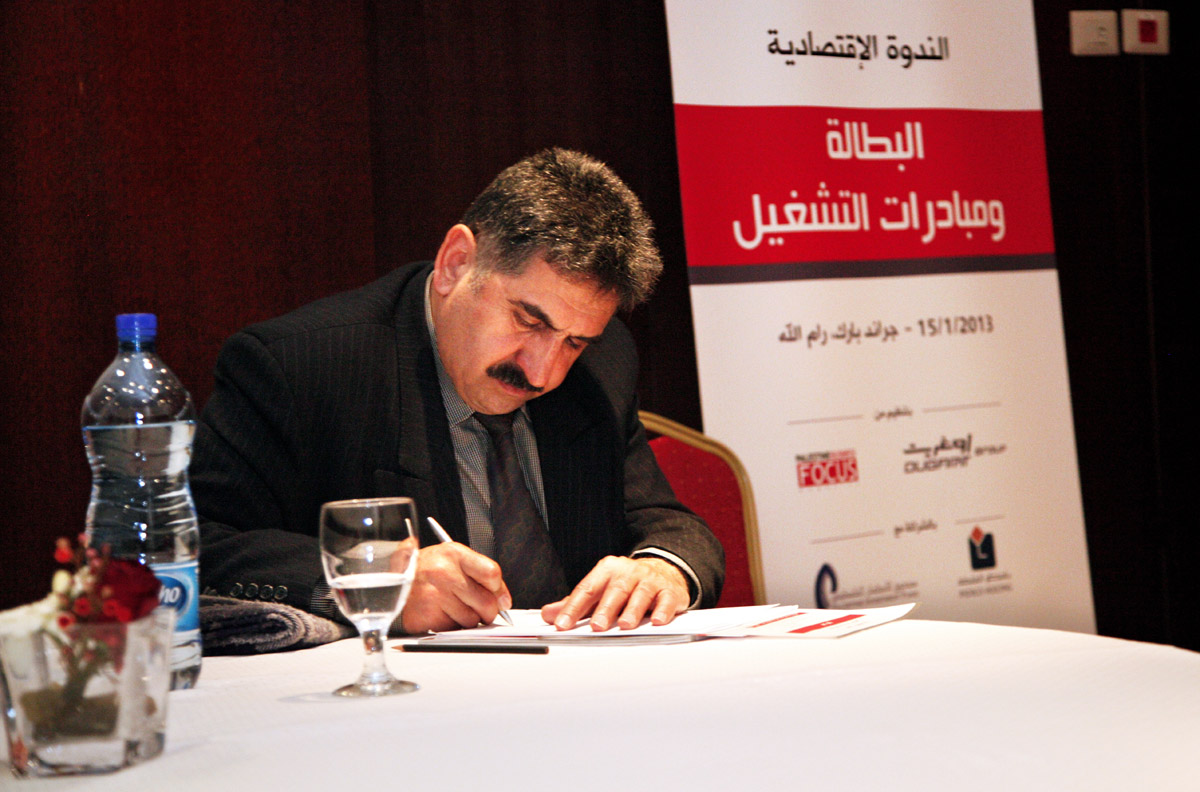
‘I carried the camera instead of carrying arms’

‘I carried the camera instead of carrying arms’
A student reflection on Bethlehem Bible College’s new MA in Peace Studies
By Nayef Hashlamoun
In the midst of the escalation of what may become a Third Intifada in the Occupied Palestinian Territory, Bethlehem Bible College recently launched Master’s Degree in Peace Studies. The program trains Christians, Muslims and other students to achieve social justice and equality for all by learning how to build bridges instead of walls of segregation and racism.
The first group of students includes Palestinian and international multicultural students from several countries, who participate in lectures and workshops in the classroom or (for those who cannot get a visa to enter the country) by using the Internet.
I am happy to be participating as student in this program in Peace Studies in Bethlehem, the birthplace of the Prince of Peace. This program is raising awareness and integrity; helping our communities learn how to build peace and social justice, despite the dangers that are part of peace-building.
About Bethelehem Bible College
Bethlehem Bible College was founded in 1979 and is accredited by the Palestinian Ministry of Education and Higher Education. It has a long history of inspiring the spirit of peace, love and social justice. It was founded by Dr. Bishara Awad, the brother of Dr. Mubarak Awad, who is a famous Palestinian peace advocate.
Working in collaboration with a number of universities in the United States, the content of the master’s program in peace studies is excellent. The teaching methods are advanced, according to a new educational system that focuses on the body, mind and spirit, and on the principles of high morals and values. The program is in English and it requires 39 credit hours, including practical training or thesis. The college’s buildings, halls and facilities are modern and equipped with various advanced tools needed by the teaching and research activities.
The Master of Peace Studies is led by a distinct cadre of professors from around the world, including: Dr. Nancy Erbe, Fulbright Specialist in peace and conflict resolution; Professor Mohammed Abu-Nimer, Director of Peace-building and Development at the American University; Dr. Edward Kaufman from the Truman Institute for Research Progress of the Peace at the Hebrew University; Dr. Mubarak Awad, a professor of non-violence at the American University in Washington; Lance Brown, Director of “Heal the Living Stones”; Dr. Jonathan Kuttab, Human Rights lawyer in Israel and Palestine; Dr. Mazin Qumsiyeh, director of the Palestine Museum of Natural History, as well as many others.
The college is located near a contact point between the Israeli soldiers and the Palestinian youth. Often, there are demonstrations right outside the college; young Palestinian men who are angry at the military and demanding freedom of their homeland go out in mass numbers to throw stones. Witnessing these clashes has a great impact in our souls. While we are studying peace in the classroom, we are surrounded by the sounds of Israeli gunshots, bombs and tear gas.
It is a powerful statement that every time we enter the campus it is with caution, and usually through the back door in order to preserve our safety. This particular atmosphere gives the student a special motivation and determination to study peace. Many times we cannot even open the windows of the hall, for fear of tear gas seeping into the building. The context in which we are studying becomes a subject to think about and discuss in the class.
About Me
I, Nayef Hashlamoun—as a Muslim MA student, head of ALWATAN Center, a political and human rights activist, a veteran from the city of Hebron—I am seeking the truth in the world of ethics. I am one of the three Muslim students in the program. I joined it right after I heard about it from the college’s founder, Dr. Awad. Such a program is an important addition to our community, especially as Palestinians who are witnessing pain on a daily basis and living moment-by-moment under military occupation.
Many times I could not travel from Hebron to the college in Bethlehem—which is only 15 miles away—because of the Israeli army road closures, stone barricades or checkpoints. Often, there were killings or military operations on the road. When I was prevented from joining my classmates in person, I would return home and pursue my studies via the Internet.
There is no doubt that I am willing to sacrifice myself for my homeland’s freedom and dignity. But I definitely cannot kill, and I do not encourage the language of violence. As a young man, I chose the way of non-violence, and decided to study Journalism and Media at Yarmouk University in Jordan. I carried the camera instead of carrying arms. I worked for twenty years as a photojournalist with the global news agency Reuters, and founded the nucleus of the ALWATAN Center for Culture, Media and Conflict Resolution in the city of Hebron in 1985.
Since that time, I have exercised my civil nonviolent resistance in a variety of ways. In 1995, I attended the Peace Studies program at the American University in Washington, and I studied “Transition to Civil Society and Democracy” in the International Leadership Academy in Germany. In 1997, I began studies on the topic of “Transforming the Conflict Between Cultures and Peace” at the School for International Training in Vermont, but due to the effects of the Second Intifada in Palestine, I was not able to continue the study.
During this time, I began to work with Dr. Mubarak Awad, founder of the non-violence movement in Palestine. I helped him to translate nonviolence and peace studies books and videos into Arabic. This was before he was deported by the Israeli occupation authorities to Washington June 14, 1988, where he eventually founded the International Organization of Non-Violence. As the winner of numerous international awards, Dr. Mubarak has been referred to as the “Gandhi of Palestine.” He was the perfect choice to launch BBC’s Peace program, returning to Palestine to teach the first unit in the Master’s Program. I was excited to spend time with him again after all these years.
Although I am a Muslim, I will be proud to get a Master’s Degree from Bethlehem Bible College. As colleagues and professors, we have good relationships with each other.
The Power of Non-Violent Resistance
I hope everyone will become convinced that non-violence is more effective than violence. Violence, which brings death and destruction, only increases suffering and hatred. I believe that non-violence is the language of the powerful. When an Occupier goes too far in oppressing a population, non-violent resistance is the best way to obtain human rights. It is my hope that the Palestinian people will continue to work towards civil peace, social justice and the powerful philosophy of forgiveness. I hope that we will follow the path of Desmond Tutu, who worked to rally the world to boycott Israeli apartheid, and to be guided by the philosophies of Martin Luther King and Mahatma Gandhi towards justice and balance in Palestine. I pray that we will respond to the challenge of injustice with love, and that all killing and hatred will cease; for the Heavenly Religions calls for peace, love, brotherhood and respect for others.
“Peace is more than a wish! Peace requires everyone to be in the circle of action” – Nayef Hashlamoun

